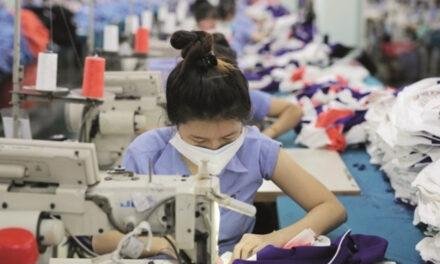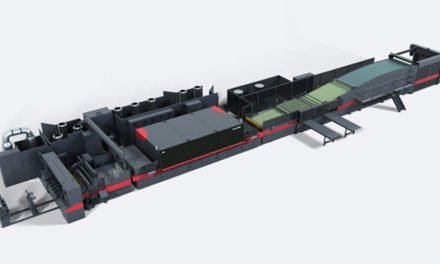European fabric manufacturers are counting on sustainability and craftsmanship as the key to surviving the pressure of an increasingly challenging economic environment, according to a report in Textile Outlook International from the global business information company Textiles Intelligence.
Manufacturers also face pressure from growing numbers of conscientious and frugal consumers who are demanding innovative and environmentally friendly products which provide individual character. They are hoping, therefore, that a focus on sustainability and craftsmanship will provide them with a competitive advantage.
Reflecting this focus, exhibitors at the European fabric fairs for the spring/summer 2020 season presented a number of innovations in materials, including fibres derived from recycled waste materials and fibres derived from sustainably sourced natural materials. Linen, hemp and lyocell proved to be favoured materials, as did linen in mixes with other natural fibres, notably cotton, silk and wool.
Exhibitors who had demonstrated a strong commitment to developing sustainable materials were championed at the fairs. At Munich Fabric Start, denim manufacturer Soorty received an award for its Rain Shield performance fabric which incorporates sustainable fibres–including Repreve nylon fibres and Tencel cellulose fibres.
A number of exhibitors seeking to elevate their sustainability credentials presented traceable materials, and many exhibitors promoted the fact that they had been awarded various sustainability certifications in recognition of their compliance with sustainability standards. Also, many exhibitors demonstrated new methods of sustainable production, including regeneration and recycling processes.
Other exhibitors, meanwhile, are focusing on creative craftsmanship. Some of them are employing skilled artisans in order to produce exceptional and rare hand-crafted products featuring design details which include ancestral weaving, beading, embroidery, novel dyeing and traditional Japanese embellishment.
Many exhibitors are aware that, despite economic challenges, consumers are prepared to pay a premium for sustainable or creatively crafted products. Consequently, they are taking advantage of this by racing ahead with research and development in these areas, and it is these exhibitors who will reap the rewards.






















